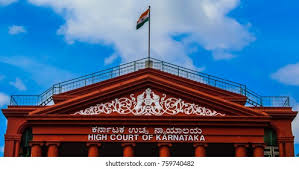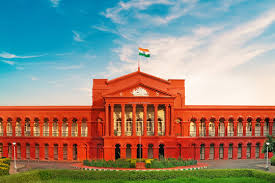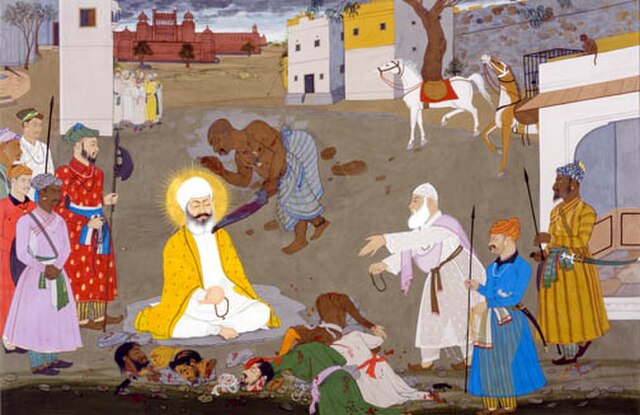🏛️ Introduction: A Court that Balances Tradition and Modernity
In the heart of Bengaluru’s bustling metropolis, where tech startups rise and scooters zip past ancient banyan trees, stands an iconic red-brick building. It doesn’t blink. It doesn’t budge. It listens.

That’s the High Court of Karnataka—one of India’s most respected judicial institutions.
For over 150 years, it has stood across the Vidhana Soudha, not just in distance—but in democratic spirit. Where laws are passed in one, they are scrutinized in the other. This is not just a court—it’s the guardian of justice for over 7 crore people.
Let’s explore the court’s past, present, and future.
🏰 From “Attara Kacheri” to Judicial Powerhouse
The Birth of a Landmark
Built in 1868 during British rule, the building was originally meant to house 18 departments—hence the name Attara Kacheri (meaning “Eighteen Offices” in Hindustani). Designed by engineer Richard Sankey, the structure has outlived empires, governments, and even demolition threats.
Today, it doesn’t just serve justice—it embodies it.
A Survivor of Time
In the 1950s and again in the 1980s, there were proposals to demolish the building. But history won over bureaucracy. Thanks to public outcry and heritage activists, the Attara Kacheri was saved—and with it, a slice of India’s colonial and constitutional journey.
🌐 Jurisdiction and Structure: Beyond Bengaluru
The High Court of Karnataka isn’t limited to the capital. It reaches across the state, bringing justice to the doorsteps of ordinary citizens.
Jurisdiction
The court handles:
-
Writ Petitions (Article 226 and 227 of the Constitution)
-
Civil & Criminal Appeals
-
Company Law, Consumer Law & PILs
-
Constitutional Matters
-
Contempt of Court
Benches
-
Principal Bench – Bengaluru
-
Permanent Bench – Dharwad
-
Permanent Bench – Kalaburagi
These benches were created to reduce regional disparity and ensure that justice isn’t just a Bengaluru privilege.

👩⚖️ Judges: The Minds Behind the Gavel
Current Strength
-
Sanctioned: 62 Judges
-
Working (as of 2025): Around 53 Judges
-
Chief Justice: Hon’ble Mr. Justice Vibhu Bakhru
-
Appointed: July 19, 2025
-
Appointing Authority: President of India, on recommendation by the Supreme Court Collegium
Judges are appointed with independence, but also immense responsibility—for every judgment delivered, lives are changed, precedents are set, and democracy is tested.
📜 Landmark Judgments: Justice in Action
Over the years, the High Court of Karnataka has delivered judgments that echo beyond its corridors.
1. Anganwadi Workers Case (2025)
The court ruled that Anganwadi roles are honorary, and not civil jobs, hence not subject to reservations. This verdict stirred both applause and debate across Karnataka’s social sector.
2. Fake Job Documents – BMTC Driver Termination Upheld
Justice over sentiment—when a bus driver was found to have forged documents, the court refused to restore his job, stressing accountability in public services.
3. Stadium Stampede – SIT Ordered
Taking suo motu cognizance of a tragic stampede in Chinnaswamy Stadium, the court ordered a Special Investigation Team. This wasn’t just about blame—it was about preventing future negligence.
4. Misuse of Atrocities Act
In a powerful judgment, the court stated that the law cannot be used as a weapon in personal disputes, dismissing a false case that involved caste misuse.
“A law meant to shield the vulnerable should never become a sword for the privileged.” – Justice M. Nagaprasanna
5. Frivolous Litigation Penalized
Litigants who filed 20+ repetitive writ petitions over decades were fined ₹10 lakh for abusing court processes—a strong message against clogging the justice system.

🧑⚖️ Famous Names Associated with the Court
Over the decades, many legal luminaries started here before moving on to the Supreme Court:
-
Justice E.S. Venkataramiah – Former Chief Justice of India
-
Justice M.N. Venkatachaliah – Headed the National Human Rights Commission
-
Justice H.L. Dattu – Retired as CJI, headed National Human Rights Commission
-
Justice S.R. Nayak – Served as Karnataka Lokayukta and passed away in 2025
These names aren’t just historical—they’re institutional memories of how the Karnataka High Court shaped national jurisprudence.
📊 Challenges: The Heavy Load of Justice
Case Pendency
-
Over 20 lakh cases pending in various courts across Karnataka
-
High Court alone has 2.7+ lakh pending matters
-
Most are civil appeals and criminal revisions, pending due to lack of judges and procedural delays
Infrastructure Gaps
Despite its technological progress, the court system still struggles with:
-
Case backlogs
-
Vacancy delays
-
Digital migration issues
-
Inadequate courtroom space in district courts
The Way Forward
Thanks to public interest petitions and recommendations from bodies like DAKSH, the court is gradually embracing:
-
E-filing systems
-
Virtual hearings
-
Case digitization
-
Judicial transparency dashboards
🌍 Why the Karnataka High Court Matters Today
In a time where public trust in institutions is fragile, the Karnataka High Court stands tall for a reason—it still believes in the quiet strength of constitutional justice.
It doesn’t make headlines every day. It doesn’t shout for attention. But when it speaks, it speaks with weight, with logic, and above all—with humanity.
🧾 Frequently Asked Questions (FAQs)
Q1: Where is the High Court of Karnataka located?
A: The principal bench is in Bengaluru, at Attara Kacheri, opposite Vidhana Soudha.
Q2: What is the age of retirement for High Court judges?
A: High Court judges retire at the age of 62.
Q3: How many permanent judges are there in Karnataka High Court?
A: As of 2025, the sanctioned strength is 62, with around 53 judges currently serving.
Q4: What types of cases does the High Court handle?
A: It handles writs, criminal appeals, civil matters, constitutional cases, service law, PILs, and more.
Q5: Can the Karnataka High Court overrule the state government?
A: Yes, through judicial review, the court can strike down executive or legislative actions that are unconstitutional.
🔑 Focus Keywords
-
High Court of Karnataka
-
Karnataka judiciary
-
Attara Kacheri Bengaluru
-
Karnataka High court
✍ Final Thoughts: Justice, Though Delayed, Is Still Alive Here
What makes the High Court of Karnataka special isn’t just its history or location—it’s its humanity.
It’s the place where a woman seeks justice after decades. Where a student files a PIL against school fees. Where an elderly man fights eviction from ancestral land. And sometimes, it’s the only place left to turn to.
Despite its flaws, delays, and bureaucracy, the Karnataka High Court remains the soul of the state’s justice system. As long as the red walls of Attara Kacheri stand, so does the hope that justice—however late—will eventually prevail.






